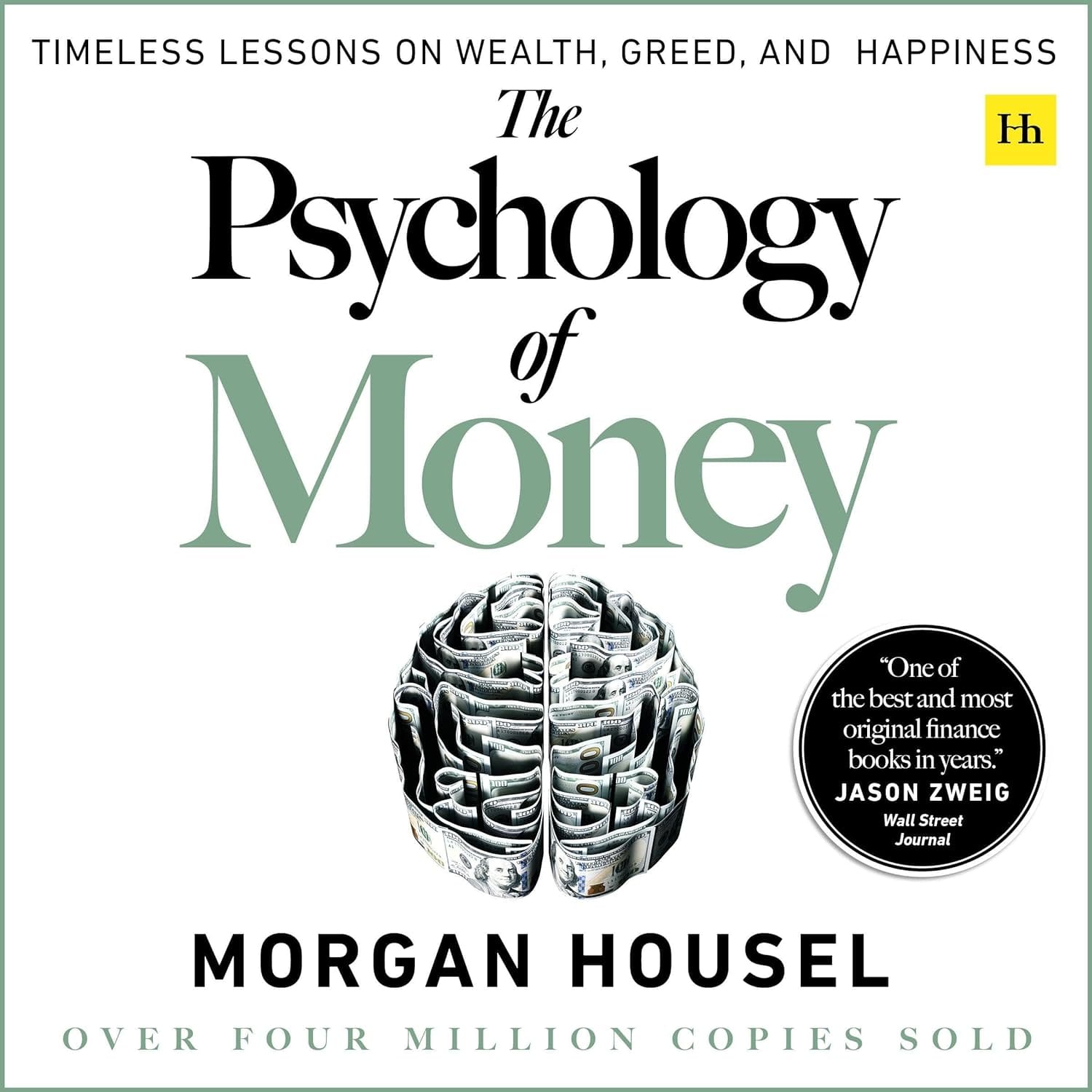Money is not merely a tool for transactions; it is a reflection of human behavior and psychology. In “The Psychology of Money” by Morgan Housel, readers embark on a journey into the fascinating realm where personal history, emotions, and societal influences converge to shape financial decisions. Let’s delve into the essence of this enlightening book and uncover its profound revelations.
Book Information: “The Psychology of Money” presents a collection of 19 short stories that delve into the intricate interplay between psychology and finance. Authored by Morgan Housel, an award-winning writer, this book transcends traditional financial literature by exploring the nuanced behaviors and emotions that drive our monetary choices. From the allure of wealth to the pitfalls of greed, each narrative offers invaluable insights into the human psyche and its relationship with money.
At the core of “The Psychology of Money” lies the notion that financial decisions are not solely dictated by rational analysis but are profoundly influenced by human behavior. Housel skillfully weaves together real-life anecdotes and psychological principles to illuminate the irrational yet predictable ways in which individuals approach money. Through captivating storytelling, readers are invited to reflect on their own attitudes and beliefs surrounding wealth, ultimately empowering them to make wiser financial choices.
Why People Like This Book: Readers are drawn to “The Psychology of Money” for its relatable storytelling and profound insights into human nature. Unlike traditional finance books that focus solely on numbers and strategies, Housel’s work delves into the underlying psychology behind financial decisions. Whether seeking to understand their own behavior or navigate complex economic landscapes, readers appreciate the depth and clarity offered by this enlightening book.
Features:
- Engaging storytelling that captivates readers’ attention
- Exploration of psychological principles applied to finance
- Practical insights applicable to individuals of all financial backgrounds
- Thought-provoking reflections on wealth, greed, and happiness
Additional Features:
- Accessible language and relatable anecdotes
- Actionable advice for improving financial behavior
- Incorporation of timeless lessons from history and psychology
Other Users Opinion: Reviews from readers of “The Psychology of Money” praise its ability to provoke introspection and stimulate meaningful conversations about finances. Many commend Housel’s storytelling prowess and his adeptness at distilling complex psychological concepts into relatable narratives. Whether seeking practical financial advice or simply a deeper understanding of human behavior, users find immense value in this thought-provoking book.
Final Verdict: In a world where money often eludes rational analysis, “The Psychology of Money” emerges as a beacon of insight and understanding. Morgan Housel’s masterful storytelling and keen observations offer readers a profound journey into the depths of human behavior and its impact on financial decisions. Whether you’re an investor, entrepreneur, or simply curious about the psychology of wealth, this book is a must-read for unlocking the mysteries of money.
In conclusion, “The Psychology of Money” by Morgan Housel is a transformative exploration of the human psyche and its relationship with wealth. Through its captivating narratives and profound insights, this book challenges readers to reconsider their attitudes towards money and empowers them to make more informed financial decisions. Embrace the wisdom within these pages and embark on a journey towards greater understanding and financial well-being.
See More Information and Buy on Amazon: The Psychology of Money on Amazon
5 FAQ and Answers:
Q: Is “The Psychology of Money” suitable for beginners in finance? A: Yes, Housel’s book is accessible to readers of all financial backgrounds, offering insights into human behavior that are applicable to individuals at any stage of their financial journey.
Q: Does “The Psychology of Money” provide actionable advice for improving financial behavior? A: Absolutely, the book offers practical insights and reflections that readers can apply to their own lives to make better financial decisions.
Q: How does “The Psychology of Money” address the relationship between money and happiness? A: Housel explores the complex dynamics between wealth, greed, and happiness, offering thought-provoking insights into how our attitudes towards money impact our overall well-being.
Q: Are the stories in “The Psychology of Money” based on real-life experiences? A: Yes, Housel draws from real-life anecdotes and historical examples to illustrate his points, making the book both informative and engaging.
Q: Is “The Psychology of Money” focused solely on individual behavior, or does it also explore broader economic trends? A: While the book primarily delves into individual behavior, Housel also touches on broader economic themes and societal influences that shape our relationship with money.







